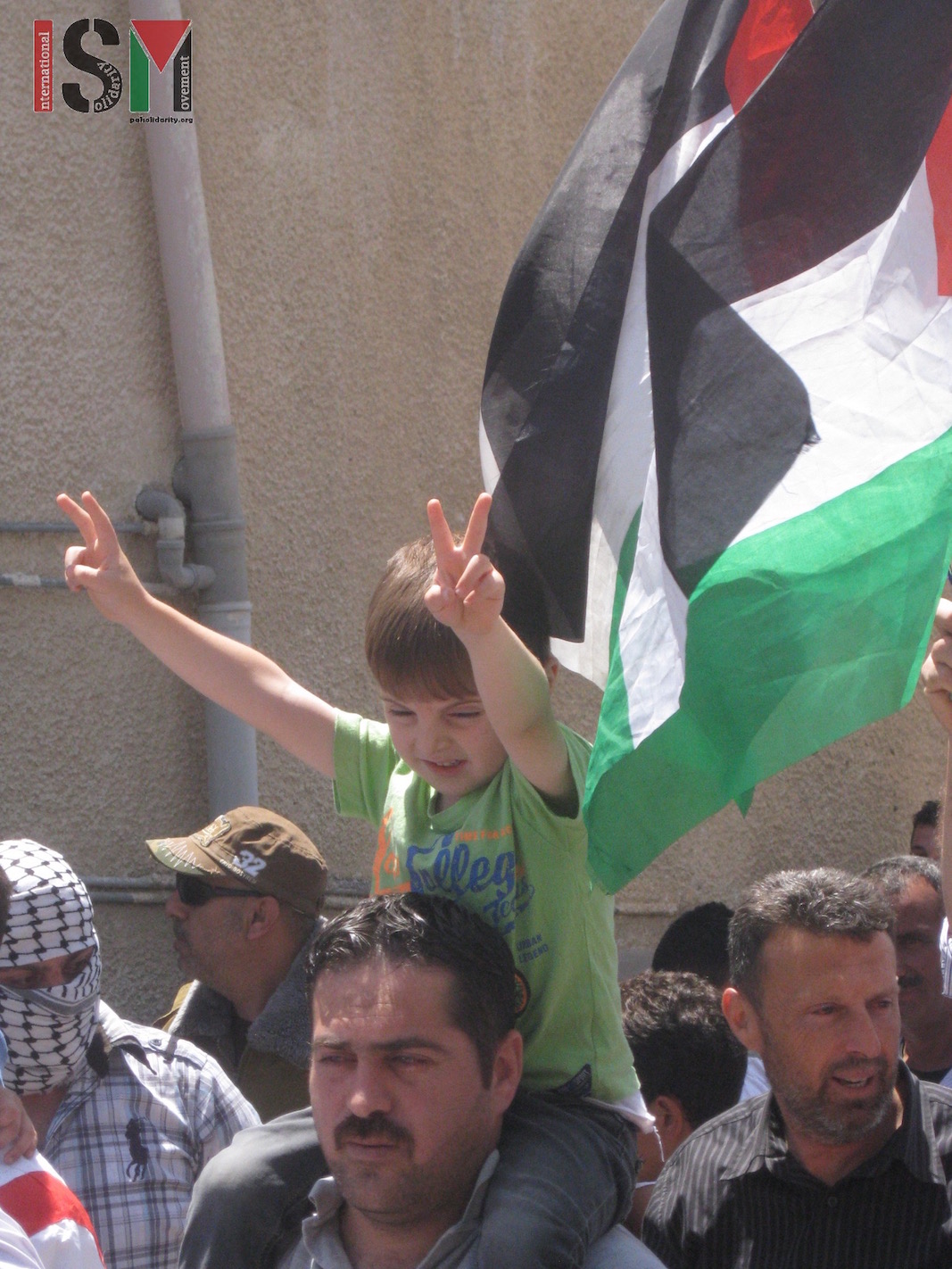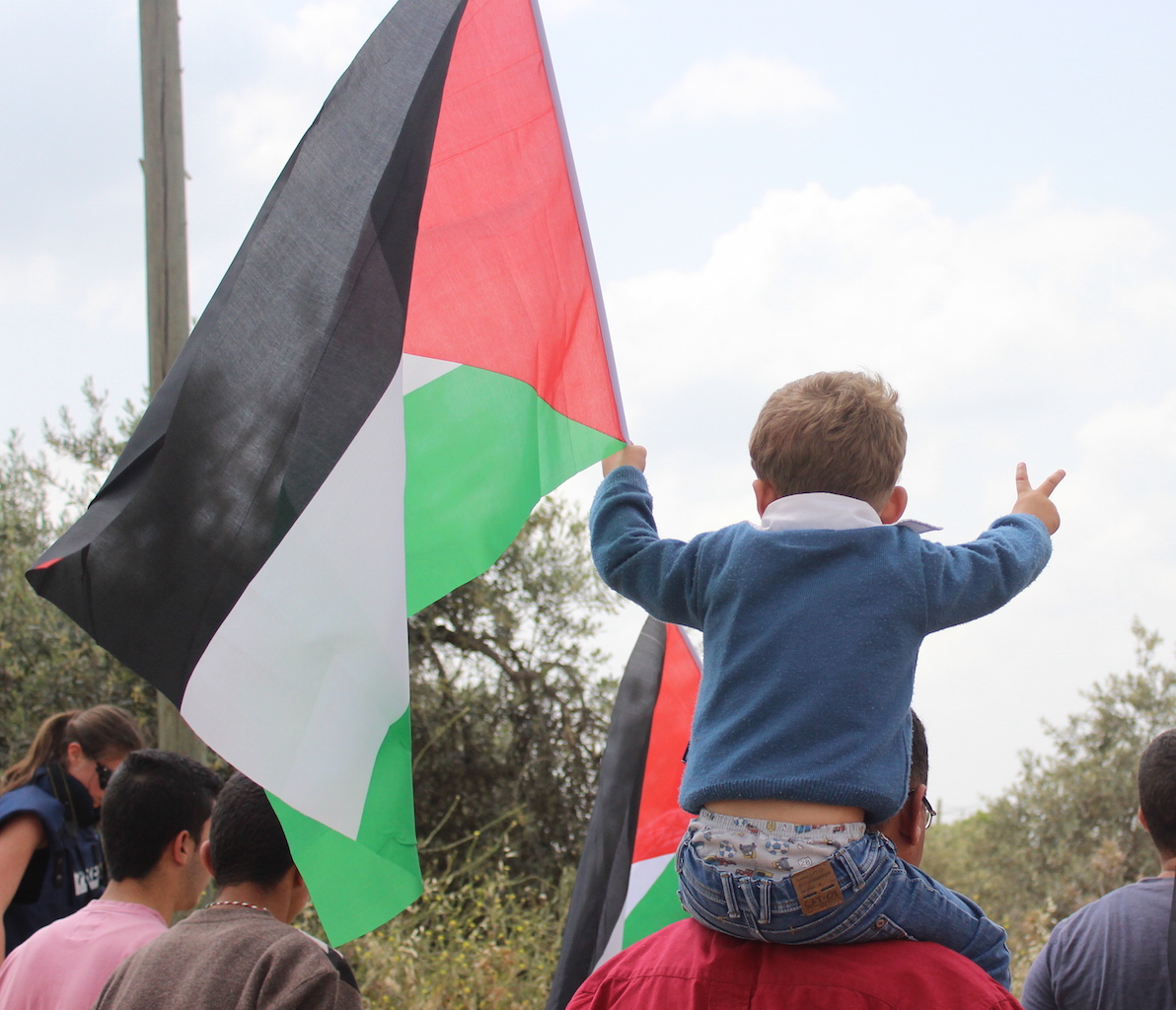Tag: Tear-Gas Canister
-

UN affects Kafr Qaddum’s demonstration
1st May 2015 | International Solidarity Movement, Huwwara Team | Kafr Qaddum, Occupied Palestine Today’s demonstration in Kafr Qaddum was met with live ammunition, rubber coated steal bullets, teargas and stun grenades. There was a large presence of Palestinian and international protestors. The Israeli forces shot two young men in the leg. UN observers were present. Before prayer…
-

One person shot at protest against Israel’s cancer-causing chemical plants in Tulkarem
29th April 2015 | International Solidarity Movement, Huwwara Team | Tulkarem, Occupied Palestine Around fifty Palestinians and international activists gathered today in Tulkarem, east of Nablus, to protest the presence of 11 Israeli chemical plants located in the city. The protest took place outside the Gishuri chemical plant on what is locally referred to as the “death…
-

Prisoners’ day at weekly Bil’in demonstration
17th April 2015 | International Solidarity Movement, Khalil Team | Bil’in, Occupied Palestine Over 300 people attended the Prisoners’ Day demonstration in Bil’in. The Israeli army fired endless amounts of teargas and shot one person in the chest with a live ammunition. After the prayer, protesters marched towards the apartheid wall and the illegal settlement…
